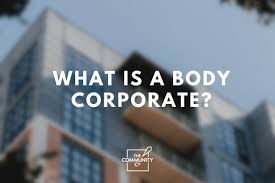Introduction
I often get queries from clients who are owners in sectional title schemes that start with “the body corporate has done xyz”. There is so much confusion on who and what the body corporate is. In this article I will explain the concept of body corporate in detail.
What does the legislation state?
In terms of section 1 of the Sectional Titles Schemes Management Act 8 of 2011 (“the STSMA”) ‘‘body corporate’’, in relation to a building and the land in a sectional title scheme, means the body corporate of that building. This definition does not shed much light on what the body corporate is.
Who becomes a member of the body corporate?
Section 2(1) of the STSM Act states that with effect from the date on which any person other than the developer becomes an owner of a unit in a scheme, there shall be deemed to be established for that scheme a body corporate of which the developer and such person are members, and any person who thereafter becomes an owner of a unit in that scheme is a member of that body corporate.
The designation or naming of the body corporate
The body corporate must be designated as the ‘‘Body Corporate’’, and must have the name and number allocated and shown on the registered sectional title plan for that scheme. For example a scheme would be set out as Sunny Side Body Corporate, No. SS 182/1997 (fictional example). This designation is used to cite the scheme in any legal proceedings and should be used in all legal documents in relation to the scheme, such as minutes of meetings.
Legal standing of the body corporate
The body corporate has perpetual succession and is capable of suing and of being sued in its corporate name in respect of:
(a) any contract entered into by the body corporate;
(b) any damage to the common property;
(c) any matter in connection with the land or building for which the body corporate is liable or for which the owners are jointly liable;
(d) any matter arising out of the exercise of any of its powers or the performance or non-performance of any of its duties under this Act or any rule; and
(e) any claim against the developer in respect of the scheme if so determined by special resolution.
When do persons cease to be members of the body corporate?
Section 2(2) states that the developer ceases to be a member of the body corporate when he or she ceases to have a share in the common property. Section 2(3) states that any other member of the body corporate ceases to be a member thereof when such member ceases to be the owner of a unit in the scheme in question.
What are the functions and powers of the body corporate?
In terms of section 2(5) of the STSM Act the body corporate is, subject to the provisions of the STSM Act, responsible for the enforcement of the rules and for the control, administration and management of the common property for the benefit of all owners. The more specific powers duties and functions of the body corporate are set out in section 3 of the STSM Act, and in the rules of the scheme.
Meetings of bodies corporate
The body corporate operates as the governing body for the all the persons who are the registered owners of units in the scheme. The members of the body corporate therefore need to meet to make decisions on how to execute their powers and functions in terms of the STSM Act. Section 6(1) of the STSM Act states that the meetings of the body corporate must take place at such time and in such form as may be determined by the body corporate. The decisions that need to be made by the body corporate are mainly done in meetings by taking resolutions. The different types of resolutions that are taken depend on the effect the decision has on the members. Initially when the body corporate is formed the members meet at the inaugural general meeting. Later the members meet annually at the annual general meeting (the “AGM’). The members can also meet on an ad hoc basis at special general meetings (the “SGM”) to decide on matters and take resolutions on issues that arise between AGMS.
Conclusion
There is distinction between “the body corporate” and persons who are owners of units with the scheme. Owners become members of the body corporate. All owners have a responsibility to understand their role as a member of the body corporate. It may be that owners merely attend meetings; participate in discussions and decisions and take the necessary resolutions. The day to day more complicated financial and legal functions can be delegated to the trustees and/or managing agent. Ultimately the members of the body corporate all play a role in the success of the scheme through their participation.
DR CARRYN MELISSA DURHAM







![Case discussion on SS Glen High v Kruger NO ((2023/055133) [2024] ZAGPJHC 1059 (10 September 2024)](https://b2659803.smushcdn.com/2659803/wp-content/uploads/2024/10/OIP-300x200.jpeg?lossy=1&strip=1&webp=1)




